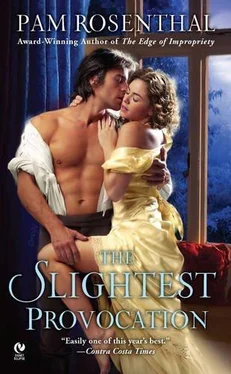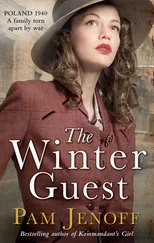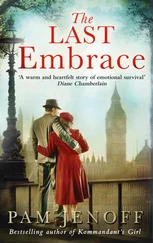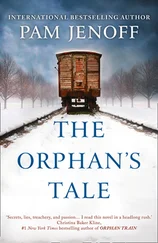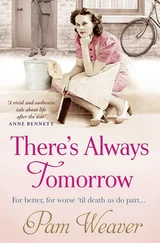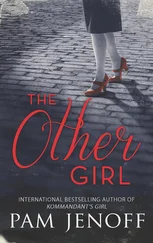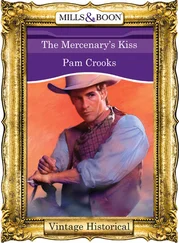“Of course I’m safe,” the girl replied. “It’s been years since I learned that move out of Mendoza’s Modern Art of Boxing, but one doesn’t forget.”
A few tears glimmered on her eyelashes. “You’ll think I’m an utter fool,” she added more quietly.
“No, no. Oh, of course not.”
Except for her book and a silver-handled hairbrush, it didn’t seem she’d unpacked anything. The landlord picked up her valise, rather as though he were afraid of her.
“Is he here with you?” she asked while she buttoned her pelisse.
“Yes.”
“Yes, I expect he would be.”
They waited in silence while Kit brought the carriage around.
Mary unfurled an umbrella to give to Fannie, as the curricle’s small backseat was open to the elements. And when Kit tried to help her in, the girl shook her head and climbed lightly in by herself.

At least the drizzle had eased off a bit.
“I could exchange places with her if you’d like,” Kit said. “She’d be drier up here, and you could comfort her. Of course, you’d have to drive, and I’d be a tight fit back there.”
“I don’t know as I’d be comforting her. She’s chagrined by the strength of her own sentiments, not to speak of having exposed them, though I daresay it’ll be the making of her. Which doesn’t mean we haven’t also acted awful fools. One can’t sneak about as we have-or one shouldn’t anyway, with younger people about. At a certain point, it seems, one needs to do rather better.”
“I expect so,” was all he said.
“I should like to drive, I think,” she said now. “I’m not the most skillful person with the ribbons, but I can keep us on the road.”
She rested her head on his shoulder for a moment before taking the reins from him.
The rain had become more intermittent, the wind tossing the clouds before it. They sang to pass the time, merry songs, sad songs, the heartbreaking one about the weaver who tried to shield his lover from the foggy dew, and the passionate shepherd’s song as well. And gradually, disjointedly, they found themselves telling each other things, odd bits and scraps they’d picked up during their years apart.
“A woman can’t be tested as a man is in battle,” she said. “But while trying to negotiate between pleasure and scandal, one does a bit of self-examination, considers whose opinion is important and whom one is willing to send to the devil.”
He nodded, the faces of a few London gentlemen flashing across his mind’s eye.
“I expect that must have been a useful exercise,” he said. “Well, I might have found it useful anyway, after being in such a confusion of intimidation by people who had certain advantages of unambiguous parentage…”
“And I,” she said, “of not knowing how to help you, and of… of fearing that you’d regretted marrying a brewer’s daughter…”
“A most generous brewer,” he reminded her, “who kept us in such fine style so that we had very little to do but confound our senses with exotic substances and lovemaking…”
She was silent for a moment. “Almost as though we could be alone in London, as we had been at the hermit’s hut-in a private world, with no responsibilities or connections or frighteningly worldly people for me to face.”
“Very romantic,” he said.
“Very much not like a marriage,” she said. “Though one wouldn’t want a marriage to be dull or too responsible or socially connected or proper. I mean it wasn’t all bad…”
“The lovemaking, for example…”
“I think we can agree that the lovemaking…”
“But yes, it was a great befuddlement,” he said, “that one didn’t seem to know how to straighten out, as dearly as one wished to. One wanted to apologize, you know; one does apologize. No, what I mean to say is that I apologize, most heartily, Mary. It’s just that one thing would get tangled up with the next. I mean, there wasn’t any one thing, you know, any single slight or misunderstanding…”
“I do know, Kit. I know exactly. And I’m sorry as well.”

“But let’s sing some more,” she said, after some silent minutes had passed. “Here, take the reins. I’m going to teach you a strange dark one Lord Byron wrote.”
And our days seem as swift, and our moments more sweet,
With thee by my side than with worlds at our feet.
But they should have been approaching Grefford by now. Or at least have seen some landmarks-the road to Silverwye Farm, a familiar stand of giant beeches. It was awfully dark; Oliver and the men of the reform societies had chosen a moonless night for the insurrection that wasn’t going to happen. And with the clouds shifting so quickly, you couldn’t depend on the stars to guide you.
“Do you suppose,” Mary asked, “it could have been that road we passed, going over to the left about an hour ago, when the wind was so blustery, and we were, ah, rather clutching one another for warmth?”
Kit shrugged and flicked his whip over the horse’s left flank.
“But there’s no point going any faster, is there,” she continued (rather reasonably, she thought), “if we don’t know where we’re going?”
He glowered, and she decided that he must agree that they were quite lost.
“And I suppose I don’t dare suggest that you might have asked that old gentleman in the dogcart, whom we passed perhaps half an hour before we came to that turn…”
He gave a low growl of warning.
“No, I thought not. Well, at least the rain has let up for a while…”
Her optimistic utterance (not surprisingly to anyone who’s ever been lost on a dark country road) worked like a wizard’s charm to illuminate the sky with a long, forked flash of lightning, followed by an impressive roll of thunder.
She shrugged her shoulders in apology and tried a timid smile, before pulling her red wool hood around her face as fat raindrops splashed down her cheeks.
Absurd to argue about it. Though she might have appreciated the slightest recognition on his part of how silly he’d been not to verify the direction.
Instead of that familiar I-know-I’m-wrong-and-don’tyou-dare-tell-me-about-it glint lighting up his eye.
No use arguing. Surely she could rise above it.
The rain beat down harder.
“Would it truly have been such a humiliation merely to ask …?”
But wait. Faint light through the trees. An inn? He turned a sheepish face to her and kissed her.
“Yes, I should have asked directions. But a gentleman doesn’t like to, you know.”

The Anvil Tavern was small, dim, smoky, and a bit hazy from the moisture drying off people’s clothes. The room occupied perhaps a quarter of the area of the bar at the Portleigh Arms-no matter; it was infinitely warmer and drier than outside, and surprisingly crowded. The walls, which had once been whitewashed, seemed almost black near the fireplace, where some men were talking in excited voices. Another group was singing-though Mary couldn’t make out the words. She, Kit, and Fannie crowded around a small table, Fannie with her eyes still turned away from Kit.
“I’ll get us something hot to drink,” he said, and pushed his way into the crush of people.
“I’m an idiot,” Fannie said very softly, when he was out of earshot. “I’ve acted a complete fool. Listening to the two of you sing and squabble and make up…”
Читать дальше
